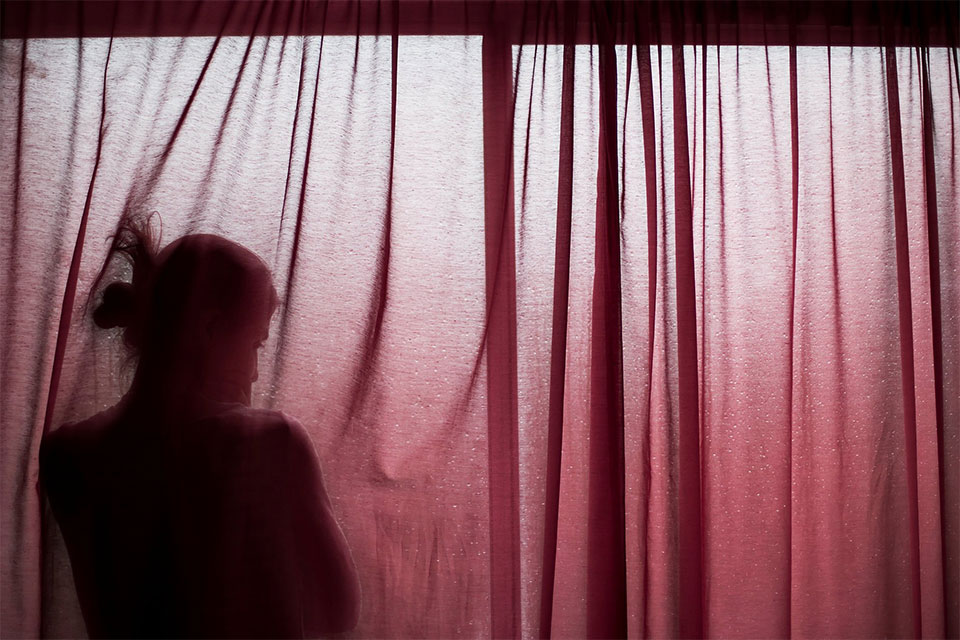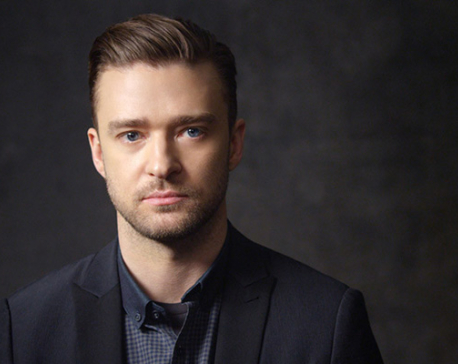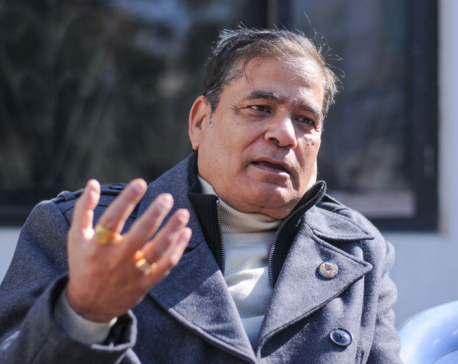
OR

CALGARY, March 22: As leader of one of Canada’s largest refugee agencies, Fariborz Birjandian, a refugee himself, has years of experience welcoming the world’s most vulnerable — Kosovar Albanians fleeing ethnic cleansing, Burmese Karens evicted from Thai refugee camps and Syrians escaping the civil war.
Nothing prepared him for the Yazidis.
Recently, he entered an English-language classroom in his agency’s building near downtown Calgary, just after a 28-year-old woman had finished describing the screams of a young girl being raped by an Islamic State soldier. Suddenly, the woman fell unconscious.
Her eyes rolled into the back of their sockets, her back arched on the floor and she began to hyperventilate, her voice a rising octave until it emerged as a yelp. She grabbed fistfuls of her hair and snapped her teeth at her forearms.
“Don’t let her bite herself,” said Kheriya Khidir, an interpreter, settling down to hold one of the woman’s arms and stroke her face lovingly. Mr. Birjandian raced off to call an ambulance. Then, he slipped into a stairwell to collect his shaken emotions.
The woman, Jihan, is one of almost 1,200, mostly women and children, victims of the Islamic State who have been brought to Canada as part of a special refugee program set up particularly for Yazidis, members of a tiny religious minority from Northern Iraq that the militants set out to decimate in August 2014.
Canada’s immigration minister — who is also a former refugee — assured Canadians the program would address the “unimaginable trauma, both physical and emotional” that most of the victims carried with them.
Continue reading the main story
But a little over a year later, the Yazidis have proved a steep challenge to the country’s celebrated refugee settlement system, and to those who work in it like Mr. Birjandian.
While safety and a new routine helped most other refugees recover, the Yazidis need more and different treatments; workers say they are the most traumatized group yet to be admitted. Counselors, doctors and other workers are hearing such upsetting stories that they themselves need treatment.
“It’s never been this extreme,” said Dr. Annalee Coakley, the lead physician of Calgary’s Mosaic Refugee Health Clinic, explaining that many Yazidis in her clinic showed symptoms of post-traumatic stress disorder — flashbacks, night terrors, anxiety, surges of anger.
In some places, efforts to help the refugees seem to be working. In others, they are stumbling.
“The services have been disparate and not coordinated,” said Michelle Rempel, the opposition member of parliament who has championed the Yazidi cause. “I don’t understand why the government has not put more emphasis on it.”
Government officials say that the program is the most elaborate in the country’s history, and that any hiccups stem from the levels of trauma, not poor planning.
“It’s not perfect, but we are fairly good at this,” said David Manicom, the immigration department’s assistant deputy minister for settlement and integration.
As documented by United Nations investigators, when militants of the Islamic State, or ISIS, descended onto Yazidi villages across arid Sinjar Mountain, they rounded up the men, either forcing them to convert to Islam or be killed. The Yazidis’ ancient faith made them apostates in the eyes of the militants.
Women and girls — some as young as 9 — were cataloged and sold into acodified system of sex slavery.
Jihan was sold so many times, she lost count. Like others interviewed for this article, she asked The New York Times to use her first name only to protect family members still held by ISIS.
She and a few other women in Calgary have had seizure-like attacks in which they drop to the ground and seem to relive their rapes.
“I didn’t know what to do,” said Margaret Styczynska, manager of Calgary Catholic Immigration Society’s resettlement center, where arriving refugees spend their first few weeks.
“They were suffocating themselves,” she continued. “They screamed like you are killing an animal. Some lasted 15 minutes or longer.”
As staff members called ambulance after ambulance — requesting female paramedics — they realized they needed to introduce trauma counseling into their work.
“We are not trained for that, but we learned how to do it,” Ms. Styczynska said.
The Canadian government oversees the country’s refugee resettlement program from a distance, funding specialized nongovernmental agencies to do the hands-on work.
Traditionally, counselors help arriving refugees set up the practicalities of their new life — finding housing, enrolling in school and language classes, setting up a bank account. For the minority whose mental health symptoms don’t go away, the family doctor is supposed to step in.
Even before they came, it was clear the Yazidis would need more. However, the government left it up to agencies to draft their own specialized programs. In some places, that has happened. In others, it did not.
“Where is the Canadian government?” said Melkaya, 27, who arrived to the suburbs of Toronto last July with her young son, and spends most of her days in their basement apartment, reliving moments from her 28 months in captivity.
“They told us they would help us with psychologist,” she said. “We haven’t see anything from them. Aren’t we human?”
The head of the settlement agency in Toronto, Mario Calla, said that it had been relying on family doctors to find psychological help for their refugee patients, and that the organization was introducing a support group now.
In Calgary, refugee workers put extra money toward rent so that they could find Yazidis apartments close to one another, for community. In one case, 45 live on one snow-swept street in the city’s southwest quadrant. The workers put on Yazidi-only English classes for the refugees’ comfort.
Still, none of this was enough. So, in August a mental health therapist began a “wellness” program, tailor-made for the Yazidis. The women are taught basic coping strategies, like smelling essential oils and cross-body exercises, said to connect the two sides of the brain.
In November, the organization hired a third crisis counselor to offer one-on-one therapy. Few, however, have taken her up on it — not even Jihan.
“We all have mental issues,” said Jihan, over dinner with five Yazidi neighbors. The names of seven loved ones — all taken by ISIS — are crudely tattooed across her chest, arms and hands.
For her, the tattooing was an act of resistance, which she did while imprisoned in Raqqa, using a sewing needle, ash and another inmate’s breast milk. “We all think a lot about what happened to us,” she said.
Jihan was diagnosed with conversion disorder, a catchall description for neurological symptoms not explained by medical causes.
Since she arrived in Canada last June, and began taking anxiety medication, her seizure-like attacks have been greatly reduced — from four a day that each might last hours, to one every couple months. She doesn’t want therapy.
A lack of interpreters who speak Kurmanji — the Yazidi dialect of Kurdish — has proved a hindrance too. A year ago, before the arrival of the Islamic State victims, there were only 1,000 to 1,500 Yazidis in Canada, according to government estimates. Sixteen Kurmanji-speaking interpreters have been hired, but that’s not enough.
Many Yazidis refuse to speak Arabic or use translation services offered by Muslim Kurds who speak Badini, a similar dialect of Kurdish.
“My heart won’t let me tell a Muslim person what happened to me,” said Kamo, another Yazidi refugee, who survived more than slavery.
Her husband and four of her seven children were pried from her and she doesn’t know their fate. The memory of the last time she saw her eldest daughter, Suzan, brings her to tears. The 14-year-old girl was screaming as ISIS soldiers surrounded her and stripped off her clothing, she said.
“I escaped from these people two years ago, but I still feel captured,” said Kamo, 38. “My heart is not with me. It is with my kids.”
Stories like this are why the Mosaic clinic introduced workshops on something called vicarious trauma for its own staff who work with Yazidi refugees.
“I’ve never heard such depravity,” said Dr. Coaklee of the clinic. “Trying to reconcile your worldview with what you are hearing, you have to change your worldview. There is no justice and life isn’t fair.”
Mr. Birjandian, the chief executive officer of the Calgary immigration society, is among a crescendo of refugee workers calling on the government to expand the Yazidi resettlement program by bringing over not only spouses and dependent children of refugees but extended family members.
“Our fear is the government will be scared of this population and won’t want to touch them,” he said. “But really, this is the population we should help — if we call what we are doing a humanitarian effort.”
“They are the most traumatized,” he added, “and the most resilient.”
Across the country in Toronto, a small group of Yazidi women and teenagers gathered on a Saturday in January for their group therapy session run by One Free World International, a nonprofit human rights organization that stepped in when it saw the local settlement agency wasn’t offering trauma counseling.
“I am always in pain,” said Adiba, a Yazidi who was captured by ISIS and sold six times before escaping. “I’m never comfortable.” She is often in tears. She contemplates suicide.
“Wherever I go, my life will be hard,” said Adiba, 28. “What I saw, it wasn’t something small or simple.”
Since she escaped, she has suffered seizure-like attacks. Normally, her family surrounds her, massaging her hands and holding her body until she calms. “We all start crying until we feel better, all together,” said her sister, Shirin.
But last September, a family friend rushed her to the nearby Mackenzie Richmond Hill Hospital where she was treated as a suicidal patient and restrained — her ankles and wrists bound to the hospital gurney.
“It was the lack of understanding of how to deal with sex slaves and victims of ISIS,” said Majed El Shafie, One Free World’s founder. “They were doing exactly what ISIS did before raping her. That really broke my heart.”
You May Like This

Justin Timberlake reveals his 'childhood trauma'
Singer-actor Justin Timberlake doesn't want his son Silas to go through the same childhood trauma that he experienced when he... Read More...

Failure of amendment bill will have unimaginable consequences
What do the Madheshi parties make of the Supreme Court verdict on constitution amendment? Do they in fact even support... Read More...

Joint replacement service in Trauma Centre
KATHMANDU, Sept 1: The National Trauma Centre has started rendering joint replacement service under its orthopedic services. ... Read More...




Just In
- Govt receives 1,658 proposals for startup loans; Minimum of 50 points required for eligibility
- Unified Socialist leader Sodari appointed Sudurpaschim CM
- One Nepali dies in UAE flood
- Madhesh Province CM Yadav expands cabinet
- 12-hour OPD service at Damauli Hospital from Thursday
- Lawmaker Dr Sharma provides Rs 2 million to children's hospital
- BFIs' lending to private sector increases by only 4.3 percent to Rs 5.087 trillion in first eight months of current FY
- NEPSE nosedives 19.56 points; daily turnover falls to Rs 2.09 billion















Leave A Comment